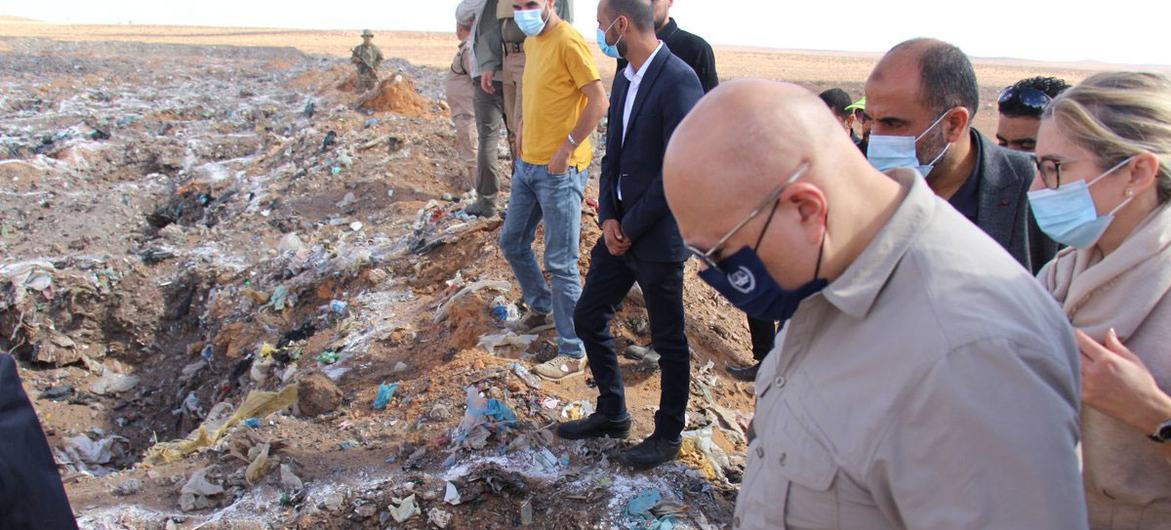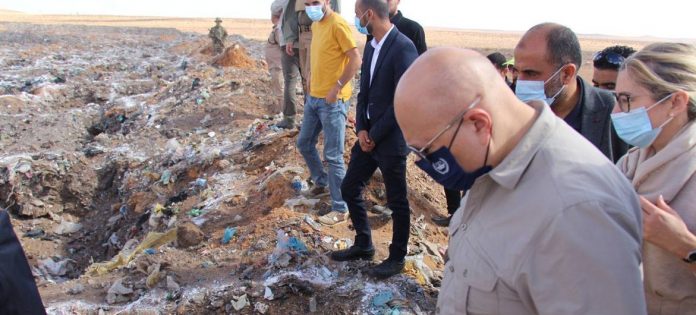The ICC issued arrest warrants in November for Israeli Prime Minister Benjamin Netanyahu and former defence minister Yoav Gallant for alleged war crimes and crimes against humanity in Gaza.
Go here to read our analysis of the decision and the likely next steps, and here for our ICC explainer.
The experts – Margaret Satterthwaite, Special Rapporteur on the independence of judges and lawyers; Francesca Albanese, Special Rapporteur on the situation of human rights in the Occupied Palestinian Territory, and George Katrougalos, Independent Expert on the promotion of a democratic and equitable international order – outlined their concerns in a statement.
A ‘shocking’ move
They are dismayed by the passage of an Act in the US House of Representatives on Thursday which sanctions the ICC for its decision. The Court also issued an arrest warrant for a former Hamas commander alongside the others.
“It is shocking to see a country that considers itself a champion of the rule of law trying to stymie the actions of an independent and impartial tribunal set up by the international community, to thwart accountability,” the experts said.
“Threats against the ICC promote a culture of impunity. They make a mockery of the decades-long quest to place law above force and atrocity,” they warned.
The experts have written to the US authorities about their concerns.
ICC promotes accountability
The ICC was established under a 1998 treaty known as the Rome Statute. The US is not a party to the statute, along with dozens of other nations, but 125 countries are members of the Court.
It has the mandate to investigate and prosecute individuals for the grave international crimes of genocide, war crimes, and crimes against humanity. It is based in the Hague, in the Netherlands.
The experts recalled that the ICC is the legacy of the Nuremberg trials which brought Nazi leaders to account and the commitment to never allow heinous crimes, such as those committed during the Second World War, to go unpunished.
“The tireless work of brave legal professionals at the ICC is the main driver for accountability. The work of its prosecutors becomes the foundation upon which our efforts to uphold the integrity of the system of international law is resting,” they said.

ICC Prosecutor Karim Khan visits the landfill site in Tarhunah, Libya, where over 250 have been identified across a number of mass graves. (file)
Respect for legal professionals
They called upon all State Parties to the ICC, and all UN Member States in General, to observe and respect international standards as it relates to legal professionals working towards accountability for the most grave international crimes.
“International standards provide that lawyers and justice personnel should be able to perform all of their professional functions without intimidation, hindrance, harassment or improper interference; and should not suffer, or be threatened with, prosecution or administrative, economic or other sanctions for any action taken in accordance with recognised professional duties, standards and ethics,” they explained.
‘A blind spot for justice’
They said the bill, titled the ‘Illegitimate Court Counteraction Act’, would take effect 60 days after enactment.
It would sanction any individual working to investigate, arrest, detain or prosecute American citizens or an official from an allied US country, including Israel. Any US funds designated for the ICC would also be rescinded, and any future money for the Court would be prohibited.
The experts said imposing sanctions on justice personnel for fulfilling their professional responsibilities is “a blatant violation of human rights” that strikes at the core of judicial independence and the rule of law.
“The passage of a bill that creates a blind spot for justice regarding certain countries not only legalises double standards and impunity but irreparably undermines the spirit of universality that the international justice system is built upon,” they said.
“Such actions erode public trust in the impartiality and integrity of justice and set a dangerous precedent, politicising judicial functions and weakening the global commitment to accountability and fairness,” they added.
Uphold judicial independence
They warned that if carried out, the sanctions would appear to amount to offences against the administration of justice under Article 70 of the Rome Statute, which punishes efforts to impede or intimidate an official of the Court or to retaliate against them on account of their official duties.
“We urge US lawmakers to uphold the rule of law and the independence of judges and lawyers, and we call on States to respect the Court’s independence as a judicial institution and protect the independence and impartiality of those who work within the Court,” they said.
About UN experts
Special Rapporteurs and Independent Experts receive their mandates from the UN Human Rights Council, which is based in Geneva.
They work on a voluntary basis, are not UN staff and do not receive a salary for their work.
The experts are independent of any government or organisation and serve in their individual capacity.

